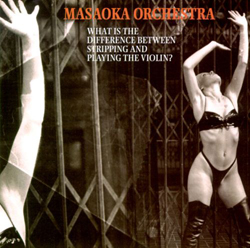
"What Is the Difference Between Stripping and Playing the Violin? contains two compositions by West Coast avant-garde artist Miya Masaoka. Although an accomplished koto player, Masaoka does not play on this CD: her hands are full conduc...
Out of Stock
Quantity in Basket: None
Log In to use our Wish List
Shipping Weight: 5.00 units
Sample The Album:
Miya Masaoka-Composer, Director
Anthony Brown-Percussion
Carla Kihlstedt-Violin
Kei Yamashita-Violin
Vijay Iyer-Violin
DJ Mariko-Turntables
Elliot Kavee-Percussion, Cello
Francis Wong-Tenor Saxophone
George Lewis-Trombone
Glenn Horiuchi-Shamisen
Hafez Modirzadeh-Tenor Saxophone, Soprano Saxophone, Piccolo Flute, Ney, Woodwind [Karna, Gosheme]
Jeff Lukas-Cello
Jeff Song-Tape
Jim Norton-Bassoon, Clarinet
Lee Yen-Tenor Saxophone, Reeds [Hichikichi]
Liberty Ellman-Electric Guitar
Liu Qi-Chao-Erhu, Suona
Mark Izu-Contrabass, Sheng, Sho
Patty Liu-Electronics
Robbie Kauker-Electronics
Thomas Day-Electronics
Sciobhan Brooks-Voice
Toyoji Tomita-Trombone
Trevor Dunn-Electric Bass
Click an artist name above to see in-stock items for that artist.
UPC: B000009D41
Label: Les Disques Victo
Catalog ID: VICCD058
Squidco Product Code: 1067
Format: CD
Condition: New
Released: 1998
Country: Canada
Packaging: Jewel Tray
"What Is the Difference Between Stripping and Playing the Violin? contains two compositions by West Coast avant-garde artist Miya Masaoka. Although an accomplished koto player, Masaoka does not play on this CD: her hands are full conducting her 16-piece ensemble. The first piece, "24,000 Years Is Forever," uses mostly the string section, with short contributions from the brass section and a brief appearance by the rhythm section toward the end. The title relates to the half-life of plutonium and the piece commemorates the 50th anniversary of the dropping of the atomic bomb. A little scholarly in the writing, it still packs a lot of emotion, thanks mostly to a tape of children sounds interwoven through the violin lines. But the main interest of this record is the second piece (and title track), a 35-minute work. It was written following the murder of five prostitutes in Masaoka's neighborhood. Shocked by the lack of reaction and outrage from the public and media, the composer triedto translate in music the disparities and conflicts between "good girl" and "bad girl." The piece was performed and recorded (in part) directly on Market Street in San Francisco with the help of erotic dancers. The music combines chamber music passages, rock fury, and orgiastic funk. The cut-and-paste style mimics the cruelty of urban life, which is nice, but overall the piece lacks some cohesion. Still, this is a work of maturity as much in the social commentary as in the writing itself. It draws on every resource of the Masaoka Orchestra (acoustic and electronic, classical and rock), and also integrates excerpts of interviews with prostitutes and members of the audience. By trying to touch everything, the composer may have gone too far, but it's still a fascinating and surprisingly engaging piece. The Masaoka Orchestra features on this recording, among others, the talents of Georges Lewis on trombone and Mr. Bungle bassist Trevor Dunn."- Francois Couture, All Music
Artist Biographies
• Show Bio for Miya Masaoka "Miya Masaoka, musician, composer, performance artist, has created works for koto, laser interfaces, laptop and video and written scores for ensembles, chamber orchestras and mixed choirs. In her performance pieces she has investigated the sound and movement of insects, as well as the physiological responses of plants, the human brain, and her own body. Within these varied contexts of sound, music and nature, her performance work emphasizes the interactive, live nature of improvisation, and reflects an individual, contemporary expression of Japanese gagaku aural gesturalism. Masaoka's work has been presented in Japan, Canada, Europe, Eastern Europe and she has toured to India six times. Venues include V2 in Rotterdam, Cybertheater in Brussels, Elektronisch Festival in Groningen, the Cleveland Performance Art Festival, The Electronik Body Festival in Bratislava, Slovakia, Radio Bremen, Germany, Festival of Lights, Hyberadad, India, and the London Musicians Collective. Since forming and directing the San Francisco Gagaku Society, Masaoka has been creating new ways of thinking about and performing on the Japanese koto. She has developed a virtuosic and innovative approach, including improvisation and expanding the instrument into a virtual space using computer, lasers, live sampling, and real time processing. Masaoka has been developing koto interfaces with midi controllers since the 1980's originally with Tom Zimmerman, co-inventor of the Body Glove. Since then, she has she has worked at STEIM, Amsterdam, CNMAT, and with Donald Swearingen to build interfaces with the computer and koto, at times using pedals, light sensors, motion sensors and ultrasound. With the koto connected directly to her laptop, she records her playing live, and processes the samples in real time. This new koto is able to respond dynamically and interactively in a variety of musical environments, and improvise with the processed sounds." ^ Hide Bio for Miya Masaoka • Show Bio for Carla Kihlstedt "Carla Kihlstedt (born 1971) is an American composer, violinist, vocalist, and multi-instrumentalist, originally from Lancaster, Pennsylvania and currently working from a home studio on Cape Cod. She is a founding member of Tin Hat Trio (1997, renamed Tin Hat), Sleepytime Gorilla Museum, The Book of Knots, Causing a Tiger and Rabbit Rabbit. Other musical projects include 2 Foot Yard, Charming Hostess and Minamo (Carla Kihlstedt & Satoko Fujii). She is a recognized classical composer who has performed with the International Contemporary Ensemble (ICE), has worked occasionally on projects with Tom Waits and Fred Frith, and recorded numerous albums as a guest or session musician. Kihlstedt has studied at the Peabody Conservatory of Music, San Francisco Conservatory of Music, and Oberlin Conservatory of Music. In February 2012 she founded Rabbit Rabbit with her husband (and former Sleepytime Gorilla Museum drummer) Matthias Bossi. Rabbit Rabbit released their debut album, Rabbit Rabbit Radio - Vol. 1 in 2013. The band revolves around a song-a-month subscription website called Rabbit Rabbit Radio." ^ Hide Bio for Carla Kihlstedt • Show Bio for Vijay Iyer "Described by The New York Times as a "social conscience, multimedia collaborator, system builder, rhapsodist, historical thinker and multicultural gateway," VIJAY IYER has carved out a unique path as an influential, prolific, shape-shifting presence in twenty-first-century music. A composer and pianist active across multiple musical communities, Iyer has created a consistently innovative, emotionally resonant body of work over the last twenty-five years, earning him a place as one of the leading music-makers of his generation. He received a MacArthur Fellowship, a Doris Duke Performing Artist Award, a United States Artist Fellowship, a Grammy nomination, the Alpert Award in the Arts, and two German "Echo" awards, and was voted Downbeat Magazine's Jazz Artist of the Year four times in the last decade. He has been praised by Pitchfork as "one of the best in the world at what he does," by the Los Angeles Weekly as "a boundless and deeply important young star," and by Minnesota Public Radio as "an American treasure." Iyer's musical language is grounded in the rhythmic traditions of South Asia and West Africa, the African American creative music movement of the 60s and 70s, and the lineage of composer-pianists from Duke Ellington and Thelonious Monk to Alice Coltrane and Geri Allen. He has released twenty-four albums of his music, most recently UnEasy (ECM Records, 2021), a trio session with drummer Tyshawn Sorey and bassist Linda May Han Oh; The Transitory Poems (ECM, 2019), a live duo recording with pianist Craig Taborn; Far From Over (ECM, 2017) with the award-winning Vijay Iyer Sextet; and A Cosmic Rhythm with Each Stroke (ECM, 2016) a suite of duets with visionary composer-trumpeter Wadada Leo Smith. Iyer is also an active composer for classical ensembles and soloists. His works have been commissioned and premiered by Brentano Quartet, Imani Winds, Bang on a Can All-Stars, The Silk Road Ensemble, International Contemporary Ensemble, Orpheus Chamber Orchestra, LA Philharmonic, American Composers Orchestra, and virtuosi Matt Haimowitz, Claire Chase, Shai Wosner, and Jennifer Koh, among others. He recently served as composer-in-residence at London's Wigmore Hall, music director of the Ojai Music Festival, and artist-in-residence at New York's Metropolitan Museum of Art. A tireless collaborator, he has written big-band music for Arturo O'Farrill and Darcy James Argue, remixed classic recordings of Talvin Singh and Meredith Monk, joined forces with legendary musicians Henry Threadgill, Reggie Workman, Zakir Hussain, and L. Subramanian, and developed interdisciplinary work with Teju Cole, Carrie Mae Weems, Mike Ladd, Prashant Bhargava, and Karole Armitage. A longtime New Yorker, Iyer lives in central Harlem with his wife and daughter. He teaches at Harvard University in the Department of Music and the Department of African and African American Studies. He is a Steinway artist." ^ Hide Bio for Vijay Iyer • Show Bio for Francis Wong "Few musicians are as accomplished as Francis Wong, considered one of "the great saxophonists of his generation" by the late jazz critic Phil Elwood. A prolific recording artist, Wong is featured on more than forty titles as a leader and sideman. For over two decades he has performed his innovative brand of jazz and creative music for audiences in North America, Asia, and Europe with such with such luminaries as Jon Jang, Tatsu Aoki, Genny Lim,William Roper, Bobby Bradford, John Tchicai, James Newton, Joseph Jarman, Don Moye and the late Glenn Horiuchi. But to simply call the Bay Area native a musician would be to ignore his pioneering leadership in communities throughout Northern California. Wong's imaginative career straddles roles as varied as performing artist, youth mentor, composer, artistic director, community activist, non-profit organization manager, consultant, music producer, and academic lecturer. Key vehicles for his work are Asian Improv aRts, the company he co-founded with Jon Jang and as a Senior Fellow at the Wildflowers Institute. In addition, Wong was a California Arts Council Artist in Residence from 1992 through 1998, and a Meet The Composer New Resident in 2000-2003. In 2000-2001 he was a Rockefeller Next Generation Leadership Fellow. He has also been a guest member of the faculty at San Francisco State University (1996-98) and at University of California at Santa Cruz (1996-2001)." "I choose for my work to build community and to seek out how I, as an artist can meet the challenges that our community faces. In the Asian American community, the biggest challenge is continuity of culture and the impact of assimilation. Through music, I envision a way to create continuity through the integration of tradition and innovation." ^ Hide Bio for Francis Wong • Show Bio for George Lewis "George E. Lewis is the Edwin H. Case Professor of American Music at Columbia University. A 2015 Fellow of the American Academy of Arts and Sciences and a Corresponding Fellow of the British Academy, Lewis has received a MacArthur Fellowship (2002), a Guggenheim Fellowship (2015), a United States Artists Walker Fellowship (2011), an Alpert Award in the Arts (1999), and fellowships from the National Endowment for the Arts. In 2015, Lewis received the degree of Doctor of Music (DMus, honoris causa) from the University of Edinburgh. A member of the Association for the Advancement of Creative Musicians (AACM) since 1971, Lewis's work in electronic and computer music, computer-based multimedia installations, and notated and improvisative forms is documented on more than 140 recordings. His work has been presented by the BBC Scottish Symphony Orchestra, London Philharmonia Orchestra, Radio-Sinfonieorchester Stuttgart, Boston Modern Orchestra Project, Talea Ensemble, Dinosaur Annex, Ensemble Pamplemousse, Wet Ink, Ensemble Erik Satie, Eco Ensemble, and others, with commissions from American Composers Orchestra, International Contemporary Ensemble, Harvestworks, Ensemble Either/Or, Orkestra Futura, Turning Point Ensemble, San Francisco Contemporary Music Players, 2010 Vancouver Cultural Olympiad, IRCAM, Glasgow Improvisers Orchestra, and others. Lewis has served as Ernest Bloch Visiting Professor of Music, University of California, Berkeley; Paul Fromm Composer in Residence, American Academy in Rome; Resident Scholar, Center for Disciplinary Innovation, University of Chicago; and CAC Fitt Artist In Residence, Brown University. Lewis received the 2012 SEAMUS Award from the Society for Electro-Acoustic Music in the United States, and his book, A Power Stronger Than Itself: The AACM and American Experimental Music (University of Chicago Press, 2008) received the American Book Award and the American Musicological Society's Music in American Culture Award. Lewis is co-editor of the two-volume Oxford Handbook of Critical Improvisation Studies (2016), and his opera Afterword, commissioned by the Gray Center for Arts and Inquiry at the University of Chicago, premiered at the Museum of Contemporary Art Chicago in October 2015 and has been performed in the United States, United Kingdom, and the Czech Republic. Professor Lewis came to Columbia in 2004, having previously taught at the University of California, San Diego, Mills College, the School of the Art Institute of Chicago, the Koninklijke Conservatorium Den Haag, and Simon Fraser University's Contemporary Arts Summer Institute. Lewis studied composition with Muhal Richard Abrams at the AACM School of Music, and trombone with Dean Hey." ^ Hide Bio for George Lewis • Show Bio for Hafez Modirzadeh "Saxophonist/theorist Hafez Modirzadeh has performed, recorded, published and lectured internationally on original cross-cultural musical concepts which include "Convergence Liberation" (in Critical Studies in Improvisation, 2011), "Compost Music" (in Leonardo, 2009), "Aural Archetypes" (in Black Music Research, 2001), as well as "Chromodality" (for Wesleyan University, 1992). Twice an NEA Jazz Fellow, Dr. Modirzadeh received a Senior Fulbright Award in 2006 to work with Flamenco and Gnawan traditions in Andalucia and Morocco, and again in 2014, to research Turkish Makam harmonization in Ankara. He is currently a Professor of Creative/World Music at San Francisco State University." ^ Hide Bio for Hafez Modirzadeh • Show Bio for Liberty Ellman "Based in Brooklyn New York, guitarist / composer Liberty Ellman has performed and or recorded with a host of stand out creative artists including: Joe Lovano, Myra Melford, Wadada Leo Smith, Butch Morris, Vijay Iyer, Steve Lehman, Greg Osby, Rudresh Mahanthappa, Nels Cline, Somi, Matana Roberts, Ledisi, Michele Rosewoman, Adam Rudolph, Josh Roseman, Barney McAll, Okkyung Lee, Steven Bernstein, Ben Goldberg and John Zorn. In 2014 Ellman worked with Jason Moran on Luanda Kinshasa, a video installation by visionary filmmaker Stan Douglas. Mr. Ellman is perhaps best known for his long tenure in Henry Threadgill's groundbreaking ensemble, Zooid. The group has recorded several critically lauded albums. Their most recent recording "In For A Penny, In For A Pound" earned a Pulitzer prize for Mr. Threadgill. In addition to playing guitar, Mr. Ellman is credited as producer and mixing engineer on that recording. He has mixed and mastered many other recordings as well, including Gregory Porter's "Be Good," which was nominated for a Grammy. Ellman has released 4 of his own critically acclaimed albums: Orthodoxy, Tactiles, Ophiuchus Butterfly, and 2015's Radiate on Pi Recordings. His compositional style has been described as "At once highly controlled and recklessly inventive," and the Wall Street Journal said: "Ellman, along with his peers, is helping to define post millennial jazz." Voted #1 Rising Star Guitarist in the 2016 Downbeat Critics Poll, he was also honored in the 2015 Jazz Times expanded critics poll, as one of the four guitarists of the year alongside Bill Frisell, John Scofield and Julian Lage. Liberty Ellman has also worked beyond the jazz world: hip hop artists Midnight Voices, and The Coup, dance producer DJ Joe Claussell, and worked on remixes of N'Dea Davenport, Chico Freeman, Ann Dyer, Ayo and others. He also made an appearance on the Grammy nominated Groove Collective record, People People Music Music." ^ Hide Bio for Liberty Ellman • Show Bio for Trevor Dunn "About Trevor Dunn 1968: born traversing a fine line between hippies and rednecks behind the redwood curtain. first musical affinities: the beach boys, blondie, cheap trick, kiss. first television: ultraman, speedracer, bugs bunny. first films: over the edge, the mouse and his child, snoopy come home, bedknobs & broomsticks. first books: zylpha keatly snyder's witches of worm, the velvet room and the headless cupid. 1977: began studies on clarinet 1981: began studies on electric bass and subsequently quit the clarinet as i realized that girls would now talk to me. 1986: the same year that Lynch's blue velvet and Slayer's reign in blood were released, graduated from EHS. the school's motto: "pigs live in litter, loggers live in pride". started a band called Mr. Bungle. then i got a job at shakey's pizza. began classical technique studies on the contrabass. 1990: graduated from humboldt state university after studying the likes of harry partch, iannis xenakis, alban berg, igor stravinksy, gustav mahler, js bach, you know, all the cats. Also performed Koussevitsky's Concerto for Double Bass with the HSO. 1992: first Mr. Bungle record released on Warner Bros. Moved to SF and two months later embarked on the first MB tour of the US. At the age of 24 I was one of the oldest people in the van. For the next eight years played lots of weddings and restaurants between tours with MB. Learned a lot about music playing with Connah, Goldberg, Schott, Kavee, Amendola, Greenlief, et al. 2000: relocated to Brooklyn, NYC. Currently playing in various projects under the direction of John Zorn (Nova Quartet, Dreamers, Electric Masada, Aleph Trio). The Nels Cline Singers, Curtis Hasselbring's New Mellow Edwards, Melvins Lite, Endangered Blood, Tomahawk, The Darius Jones Quartet & Erik Friedlander's Bonebridge. I still have plans for my own bands: trio-convulsant, PROOF Readers and MadLove; and I continue to write music for independent films, practice long tones, pine over Daisy Lowe and drink shitty beer in heavy metal saloons." ^ Hide Bio for Trevor Dunn
1/13/2025
Have a better biography or biography source? Please Contact Us so that we can update this biography.
1/13/2025
Have a better biography or biography source? Please Contact Us so that we can update this biography.
1/13/2025
Have a better biography or biography source? Please Contact Us so that we can update this biography.
-Francis Wong Website (https://www.franciswong.net/biography)
1/13/2025
Have a better biography or biography source? Please Contact Us so that we can update this biography.
1/13/2025
Have a better biography or biography source? Please Contact Us so that we can update this biography.
1/13/2025
Have a better biography or biography source? Please Contact Us so that we can update this biography.
1/13/2025
Have a better biography or biography source? Please Contact Us so that we can update this biography.
1/13/2025
Have a better biography or biography source? Please Contact Us so that we can update this biography.
Track Listing:
1. 24,000 Years Is Forever 14:41
2. What Is The Difference Between Stripping & Playing The Violin? 35:10
May 2017
Victo
Improvised Music
Jazz
Free Improvisation
Large Ensembles
Asian Improvisation & Jazz
West Coast/Pacific US Jazz
NY Downtown & Metropolitan Jazz/Improv
Search for other titles on the label:
Les Disques Victo.



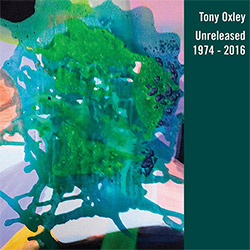

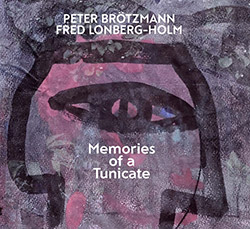
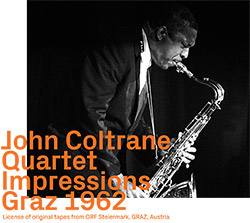
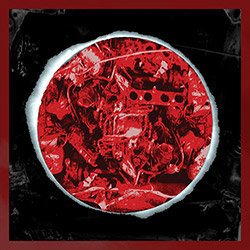

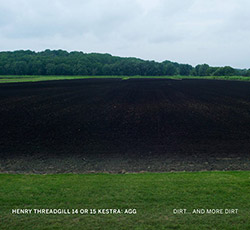


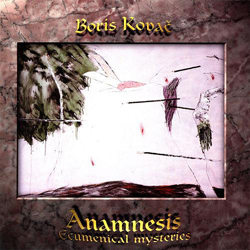
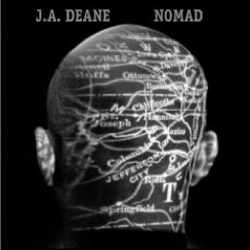
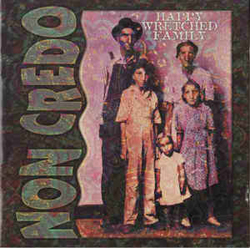
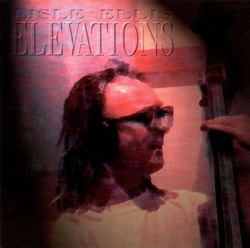


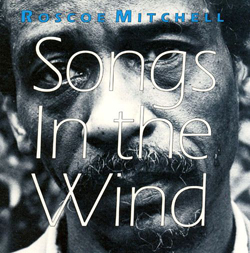

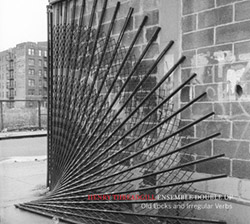

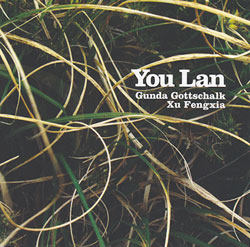
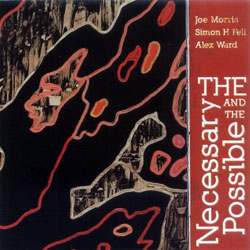
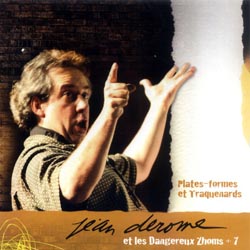
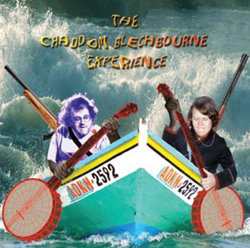
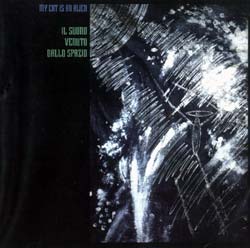

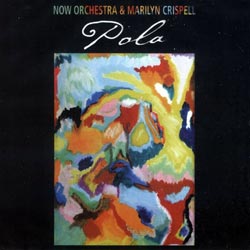

![Sarian, Michael / Matthew Putman / Ledian Mola / Federico Ughi: The Sea, The Space, and Egypt, Vol. 1 [VINYL]](https://www.teuthida.com/productImages/misc4/35463.jpg)
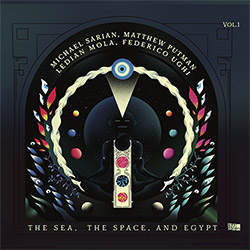
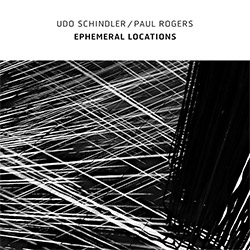
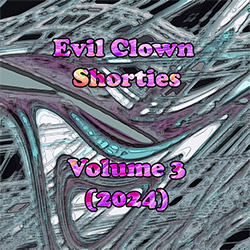



![Berne, Tim (w/ Tom Rainey / Gregg Belisle-Chi): Yikes Too [2 CDs]](https://www.teuthida.com/productImages/misc4/35601.jpg)
![Berne, Tim (w/ Rainey / Belisle-Chi): Yikes [VINYL]](https://www.teuthida.com/productImages/misc4/35602.jpg)

![Butcher / Davies / Sanders / Thomas: Unlockings [VINYL]](https://www.teuthida.com/productImages/misc4/35002.jpg)
![Butcher / Davies / Sanders / Thomas: Lower Marsh [VINYL]](https://www.teuthida.com/productImages/misc4/35003.jpg)
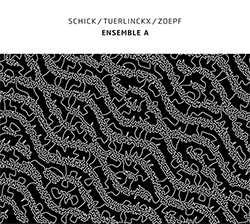
![Beins, Burkhard (w/ Dorner / Elieh / Ermke / Neumann / Renkel / Tuerlinckx / Zapparoli): Eight Duos [3 LPs]](https://www.teuthida.com/productImages/misc4/35473.jpg)
![Fagaschinski, Kai / Yan Jun : Graveyard Processions [VINYL w/ DOWNLOAD]](https://www.teuthida.com/productImages/misc4/35474.jpg)
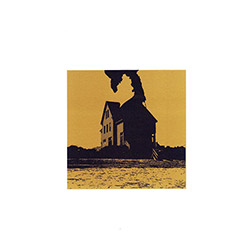

![Brulez les meubles (+ Ingrid Laubrock / Marianne Trudel / Jonathan Huard): FOLIO #5 [VINYL]](https://www.teuthida.com/productImages/misc4/35629.jpg)
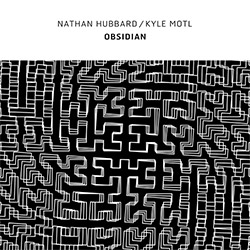

![Taylor, Cecil: The Classic Albums - 8 Remastered LPs [4 CD BOX SET]](https://www.teuthida.com/productImages/misc4/35519.jpg)
![Bang / Duch / Honore / Toop / Wastell: Wunderkammer [VINYL]](https://www.teuthida.com/productImages/misc4/35536.jpg)

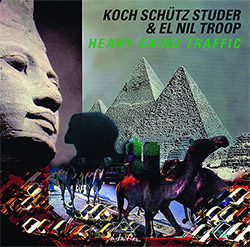


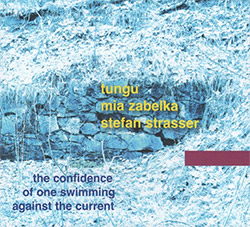
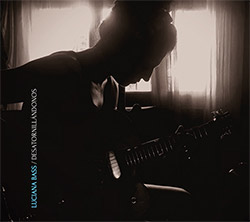


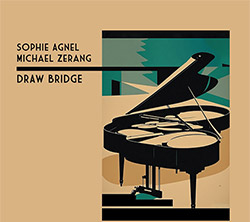
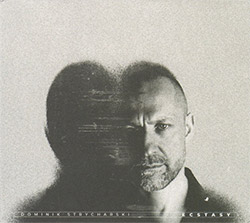
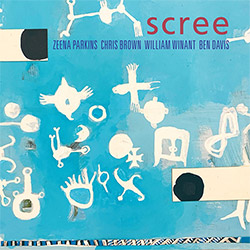
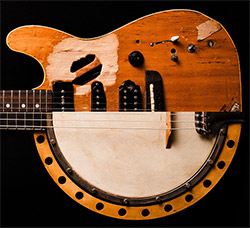
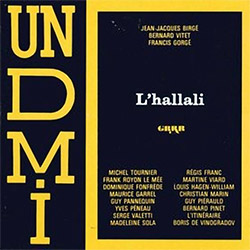
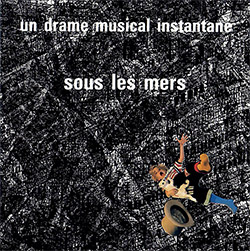

![Parker, Evan: The Heraclitean Two-Step, etc. [4 CDs + BOOK]](https://www.teuthida.com/productImages/misc4/35313.jpg)
![Carter, Daniel / Leo Genovese / William Parker / Francisco Mela: Shine Hear Volume 2 [VINYL]](https://www.teuthida.com/productImages/misc4/35073.jpg)
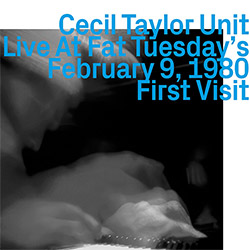
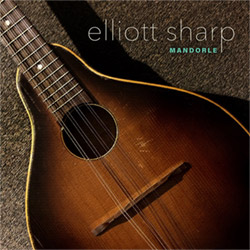

![Moth Bucket (Sims / Searfoss / Dorsey): Vagary Suite [CASSETTE + DOWNLOAD]](https://www.teuthida.com/productImages/misc4/35571.jpg)
![Schindler, Udo / Paul Rogers feat. Eric Zwang: Ephemeral Locations [2 CDs]](https://www.teuthida.com/productImages/misc4/35186.jpg)
![Brant, Cody / Carl Kruger: Smoke Detail [CASSETTE w/ DOWNLOAD]](https://www.teuthida.com/productImages/misc4/35551.jpg)
![Weirs and Magic Tuber Stringband : The Crozet Tunnel [CASSETTE + DOWNLOAD]](https://www.teuthida.com/productImages/misc4/35570.jpg)
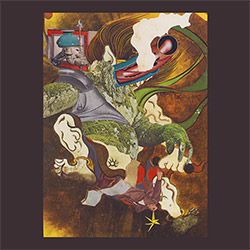
![Abcess Grenk: Erguss Von Licht [CASSETTE w/ DOWNLOAD]](https://www.teuthida.com/productImages/misc4/35560.jpg)

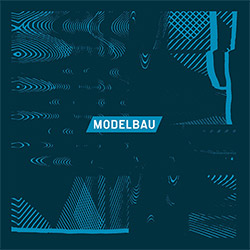
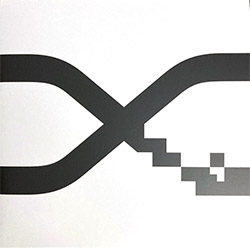
![Alva Noto: Xerrox Vol. 5 [VINYL 2 LPs]](https://www.teuthida.com/productImages/misc4/35359.jpg)
![Weston, Matt: Communism Has Appeared On The Scene [VINYL 2 LPs]](https://www.teuthida.com/productImages/misc4/35546.jpg)

![Jeck, Philip: rpm [2 CDs]](https://www.teuthida.com/productImages/misc4/35455.jpg)






![DNS: Taking Big Bites Of The Khandas Three Cafes Deep [2 CDs]](https://www.teuthida.com/productImages/misc4/35334.jpg)




![Cleaver, Gerald: The Process [VINYL]](https://www.teuthida.com/productImages/misc4/34966.jpg)




![Alva Noto: HYbr:ID II [VINYL 2 LPs]](https://www.teuthida.com/productImages/misc4/35201.jpg)
![Lonsdale, Eden: Dawnings [2 CDs]](https://www.teuthida.com/productImages/misc4/35480.jpg)







![Sanna, Claudio: Compositori Sardi Contemporanei II [2 CDs]](https://www.teuthida.com/productImages/misc4/35317.jpg)







![Zurria, Manuel: Fame di Vento [3 CDs]](https://www.teuthida.com/productImages/misc4/35167.jpg)

![Granberg, Magnus / Nattens Inbrott / Skogen: Holde Traume, Kehret Wieder! [2 CDs]](https://www.teuthida.com/productImages/misc4/35038.jpg)
![Frey, Jurg: Outermost Melodie [2 CDs]](https://www.teuthida.com/productImages/misc4/35039.jpg)

![Pavone, Jessica: Reverse Bloom [VINYL]](https://www.teuthida.com/productImages/misc4/34895.jpg)




![Modney (Modney / Wooley / Gentile / Roberts / Pluta / Symthe / ...): Ascending Primes [2 CDs]](https://www.teuthida.com/productImages/misc4/34852.jpg)




![Elephant9 : Mythical River [VINYL]](https://www.teuthida.com/productImages/misc4/34624.jpg)



![Elephant9 with Terje Rypdal: Catching Fire [VINYL 2 LPs]](https://www.teuthida.com/productImages/misc4/35355.jpg)
![Deerlady (Obomsawin, Mali / Magdalena Abrego): Greatest Hits [VINYL]](https://www.teuthida.com/productImages/misc4/34876.jpg)




![Haino, Keiji: Black Blues [2 CDs]](https://www.teuthida.com/productImages/misc4/35109.jpg)



![Surplus 1980: Illusion of Consistency [CD]](https://www.teuthida.com/productImages/misc4/35069.jpg)
![Staiano, Moe: Away Towards the Light [VINYL + DOWNLOAD]](https://www.teuthida.com/productImages/misc4/35037.jpg)



![Caveira (Gomes / Sousa / Abras / Ferrandini): Ficar Vivo [VINYL]](https://www.teuthida.com/productImages/misc4/34643.jpg)
![Gregg, J. J. / David Van Auken: Lunar Prairie [CD w/ DOWNLOAD]](https://www.teuthida.com/productImages/misc4/34611.jpg)

![Coultrain: Mundus [VINYL]](https://www.teuthida.com/productImages/misc4/32439.jpg)
![Mattin: Songbook #6 [VINYL]](https://www.teuthida.com/productImages/misc4/27317.jpg)
![Punkappella: Wake Up [7-inch VINYL]](https://www.teuthida.com/productImages/misc4/17519.jpg)
![Residents, The: WARNING: UNiNC.: Live And Experimental Recordings 1971-1972 [VINYL 2 LPs]](https://www.teuthida.com/productImages/misc4/31521.jpg)
![Coley, Byron: Dating Tips for Touring Bands [VINYL]](https://www.teuthida.com/productImages/misc4/17906.jpg)

![Lost Kisses: My Life is Sad & Funny [DVD]](https://www.teuthida.com/productImages/misc4/lostKissesDVD.jpg)